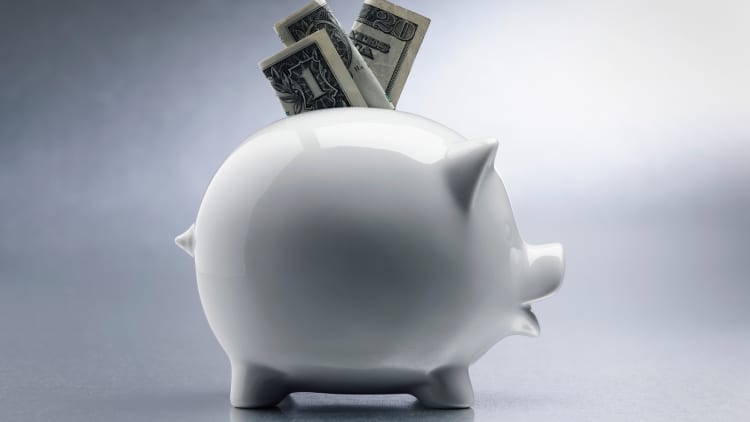More than talk of emergencies, we suddenly must deal with one: a virus that grew into a pandemic.
With medical resources overwhelmed, schools closing, many employees asked to work from home, and the stock market gyrating, we are up against a formidable challenge. How prepared are we to meet it? The indicators that give us a glimpse into the personal finances of Americans are not reassuring.
According to recent data from the 2018 National Financial Capability Study and the 2019 P-Fin Index, only 50% of Americans say they can cover expenses and bills with no difficulty in a typical month. Nearly eight in 10 carry some kind of debt; 37% feel that they have too much debt. Health care is a notable part of this burden. Nearly one quarter of Americans report having unpaid or past-due bills from a health care or medical service provider.
Against this backdrop, the ability to face a shock is limited. When asked if they would be able to come up with $2,000 if an unexpected need arose within the next month, nearly a third of Americans (31%) said they probably or certainly could not. That question was about a small or mid-sized shock: an unexpected car repair, an unplanned home repair bill or an unanticipated legal expense.
The emergence of the novel coronavirus presents a shock of tremendous proportion at a time when personal finances are already a source of stress for most Americans. Even before the pandemic, as much as 53 percent of the population felt anxious when thinking about personal finances. For 44 percent of Americans, mere talk about their finances causes their hearts to race and their stress levels to climb.

These troubling statistics summarize the state of many families' balance sheet today. It is clear that help is needed. Monetary policy interventions, like the ones already enacted, provide some relief, but will unlikely be enough to weather a shock of this proportion. As we brace for the impact of COVID-19 and await policy interventions, there are a few considerations to keep in mind to stay financially resilient.
- Delaying or postponing bill payments can provide temporary relief but at an insidious cost. In addition to fees and penalties, it can lower credit scores, making it harder to borrow money and, even when loans are available, pushing up their interest rates.
- Increasing certain types of debt can spark a negative cascade over the long term. Credit cards are an example. If we max out our credit cards, the payments become sizeable because of the high interest rates normally charged by credit card companies. If we miss paying the minimum owed or exceed credit limits, stiff fees kick in, our credit scores decline and even higher interest rates apply.
- Turning to payday lenders — online or conveniently located in close-by neighborhoods and with long business hours — may provide much needed liquidity, but the long-term impact can be calamitous. These loans carry the highest interest rates. The same is true of loans against cars, also called auto title loans.
More from Invest in You:
Financial independence fans see opportunity as market lurches
SBA and small business loans have never faced test like coronavirus
Your brain is making you stockpile. It's also making you want to flee to cash
That does not mean there are no solutions when emergency funds run short. One of the most useful — and essential —steps during difficult times is to have a budget. By keeping track of all our expenses, we are better able to see where we can reduce costs, make spending cuts, reach out to service providers to see if they offer different payments methods, and gain some liquidity.

For those of us getting a tax refund this tax season, it is an ideal time to use it to feed an emergency fund. The size of that fund may need to be large, given the uncertainty.
It is also useful to consider cheaper borrowing options, now that interest rates have decreased so much. For those of us with mortgages and plenty of equity in our homes, this may be the time to open a home equity line of credit. Using our property as collateral, this strategy will typically carry a lower rate of interest than other forms of borrowing, including personal loans. Be mindful, however, that in addition to upfront costs, there is a risk: Homeowners can lose their properties if they fail to pay back. This option was conceived for home improvements, but with discipline, it can be used to lower the cost of accessing funds. More information can be found here.
Another way to take advantage of low interest rates is to refinance a mortgage. This can lead to lower monthly payments. Another strategy is to refinance to take out a bigger mortgage and use the difference to feed an emergency fund. It is important, however, to remember the fixed costs that come with refinancing, including fees and closing costs. Useful information is provided here.
Taking care of our finances during challenging times enables us to stay financially healthy and reduce financial anxiety. While we practice social distance and spend more time at home, there are many resources we can tap to build our money-management knowledge. As the financial markets roil, our best investment may be in financial know-how.
Annamaria Lusardi is the Denit Trust Endowed Chair of Economics and Accountancy at the George Washington University School of Business. She is also a member of CNBC's Financial Wellness Advisory Council.

SIGN UP: Money 101 is an 8-week learning course to financial freedom, delivered weekly to your inbox.
CHECK OUT: Clean your phone at least once a day, says infectious disease specialist — here's how via Grow with Acorns+CNBC.
Disclosure: NBCUniversal and Comcast Ventures are investors in Acorns.






